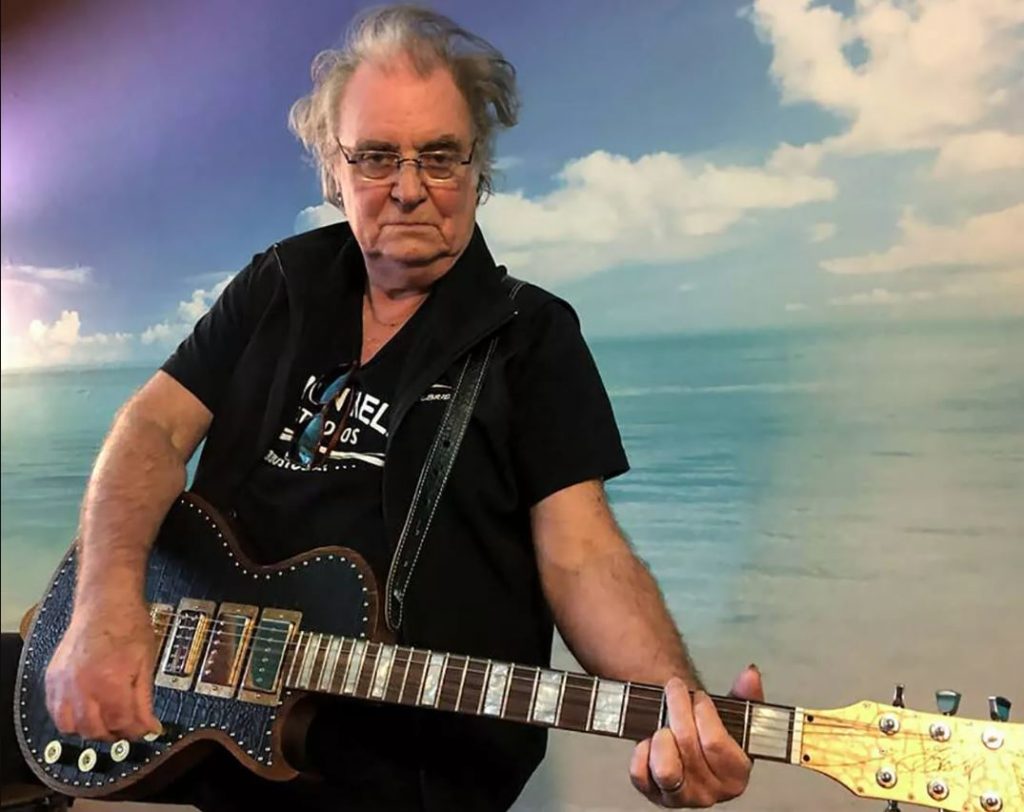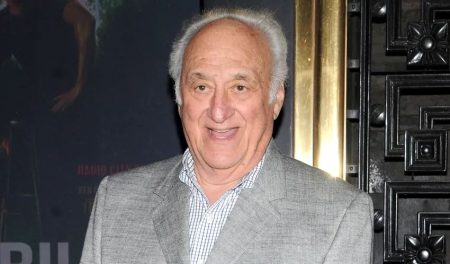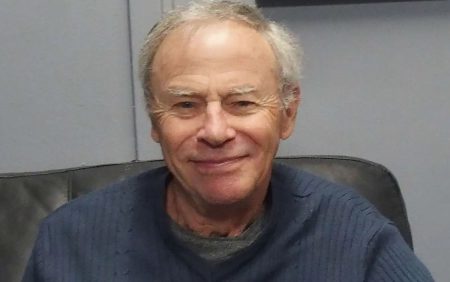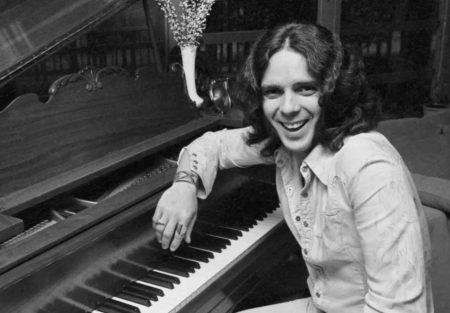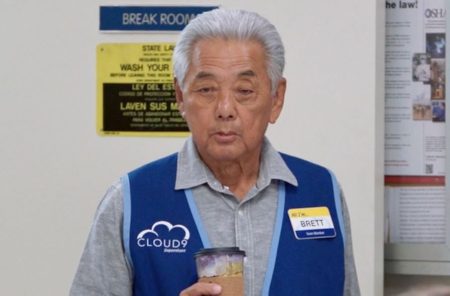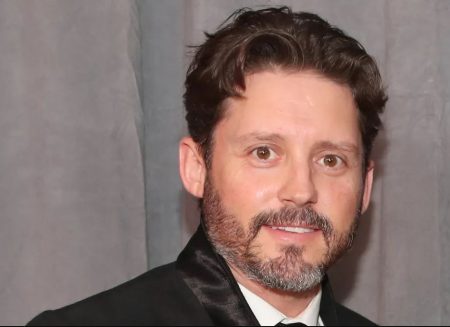Terry Reid was born Terrance James Reid on November 13, 1949, in St Neots, Cambridgeshire, England. Raised in the village of Bluntisham, he discovered music early. As a teenager, he formed a band called The Redbeats, performing locally and honing his powerful vocals. At just 16 years old, Reid joined Peter Jay and the Jaywalkers, and by 1966 they were touring Britain supporting legendary acts like The Rolling Stones, Ike & Tina Turner, and The Yardbirds.
That formative period set the tone for Reid’s entire career. As a young musician, he displayed vocal range and stamina beyond his years—traits that would earn him the enduring nickname “Superlungs.”
Breakout: Solo Beginnings and Offers from Legends
When The Jaywalkers disbanded in 1967, Reid embarked on a solo path. His debut album, Bang, Bang You’re Terry Reid (1968), showcased both youthful creativity and raw emotional power. Among its standout tracks was “Without Expression,” a song Reid penned at just 14 and one later covered by artists such as REO Speedwagon, Crosby, Stills & Nash, and John Mellencamp.
In 1969, Reid released his self-titled second album (Move Over for Terry Reid in the U.S.), which climbed the Billboard 200 to No. 147—an encouraging moment commercially, though still modest in mass-market terms.
That same year, Reid received two career-defining offers: to front Led Zeppelin, from Jimmy Page, and later Deep Purple, from Ritchie Blackmore. Shockingly, Reid turned both down. Citing loyalty to his commitments and faith in his own creative path, he instead recommended Robert Plant and John Bonham to Page—a suggestion that shaped rock history. He later explained, “It was a perfect combination… I contributed half the band—that’s enough on my part”.
Cult Classic Albums: River, Seed of Memory, Rogue Waves
Terry Reid’s third studio album, River (1973), is now widely regarded as a cult masterpiece—a genre-defying mix of rock, blues, soul, funk, and Latin textures. But its lack of mainstream promotion by Atlantic Records essentially stifled wider recognition at the time.
In its wake came Seed of Memory (1976), produced by Graham Nash, and Rogue Waves (1978), produced by Chris Kimsey—two albums representative of Reid’s rich musical fusion, though again commercially underappreciated during their release era.
Reinvention & Session Work
By the early 1980s, Reid shifted his focus from solo recording to session work and collaborations. Settling in Santa Monica, he contributed vocals and guitar to projects by Bonnie Raitt, Don Henley, and Jackson Browne.
In 1991, he returned with the Trevor Horn–produced album The Driver. Reid later described the record as a disappointment—“unlistenable”—though it featured a version of “Gimme Some Lovin’” that appeared in the film Days of Thunder .
Resurgence in the 2000s: Live Shows & Collaborations
In the early 2000s, Reid re-emerged as a captivating live performer. He established a weekly residency at The Joint in Los Angeles, often joined on stage by friends and admirers such as Robert Plant, Keith Richards, Bobby Womack, Roger Daltrey, and Eric Burdon. Plant once said on stage that Reid “could have had [his] life” had he accepted earlier band offers.
In 2005, he toured the U.K. again, performing in storied venues like The 100 Club and Ronnie Scott’s—solidifying his status as a revered live presence.
He also worked closely with guitarist Matt Sweeney, earning praise as “the greatest singer/guitar player of the seventies.” This partnership landed them on Pavement’s curated All Tomorrow’s Parties festival in 2010.
Influence & Legacy: Covers & Collaborations
Though Terry Reid never topped the charts, his songs resonated deeply within the musical community. Artists who covered his work include The Hollies, Marianne Faithfull, Chris Cornell, Jack White’s Raconteurs, Cheap Trick, Rumer, and Joe Perry. In later years, DJ Shadow invited him as a collaborator, and he worked with Dr. Dre on sessions inspired by Seed of Memory.
The reissued compilation The Other Side of the River (2016) mined previously unreleased sessions from the River era, offering fans renewed access to his creative vision.
Illness, Final Performances & Passing
By early 2025, Reid faced serious health issues, including cancer, prompting him to cancel an upcoming U.K., Ireland, and Norway tour. A GoFundMe campaign had been launched to help cover mounting medical bills, giving fans insight into his quietly courage-filled struggle.
He played his final live show in September 2024, at The Half Moon in London, before health constraints made further performances impossible.
On August 5, 2025, his passing at age 75 was confirmed by Cleopatra Records and his representative via The Guardian. No official cause of death was released, though he had been battling cancer and related health complications in the months preceding.
Significance & Reflection on His Legacy
The Artist Who Turned Down Superstardom
Reid’s decisions to decline Zeppelin and Deep Purple remain legendary “what-ifs” in rock lore. Yet he never regretted them, valuing artistic independence over fame: “I was intent on doing my own thing,” he said, emphasizing that his deferral shaped rock’s trajectory as much as his own.
A Voice Respected by Peers
Reid was often called the musician’s musician. Aretha Franklin once remarked, “There are only three things happening in England: the Rolling Stones, the Beatles and Terry Reid.” Peer tributes poured in: Joe Bonamassa called Reid “one of the greatest to ever do it and a beautiful person and soul”.
Influence Beyond Charts
Although commercial success eluded him, Reid’s blend of rock, folk, soul, blues, funk, and Latin rhythms influenced generations. His songs became fixture covers; his story became legend. Musicians admired his integrity, capability, and humble presence on stage and off.
Fast Facts: Terry Reid
- Full Name: Terrance James Reid
- Born: November 13, 1949, St Neots, Cambridgeshire, England
- Died: August 5, 2025 (age 75), confirmed via Cleopatra Records & The Guardian
- Nickname: “Superlungs” (for his vocal power)
- Early Band: The Redbeats; Peter Jay & The Jaywalkers (supported major acts at age 16)
- Major Albums: Bang, Bang You’re Terry Reid (1968), Terry Reid (1969), River (1973), Seed of Memory (1976), Rogue Waves (1978), The Driver (1991)
- Career Turned Down: Invitations to front Led Zeppelin and Deep Purple (1969)
- Collaborators & Covers: Chris Cornell, Raconteurs, Marianne Faithfull, Cheap Trick, DJ Shadow, Dr. Dre
- Final Live Appearance: September 2024, at The Half Moon, London
- Final Release: The Other Side of the River (2016 reissue)
- Cause of Cancellation: Cancer and related health issues—publicly managed through crowdfunding support efforts in 2025
A Heritage Beyond Fame
Though Terry Reid never achieved household-name status, his life reminds us that greatness isn’t always measured by sales or charts. He chose authenticity over mass appeal. His voice—a rare instrument of endurance and emotion—inspired peers and fans alike.
His legacy lives in every cover version, every Musicians’ memoir that recalls his stage presence, and in the whisper of what might have been had he joined the biggest bands of all. But in choosing his own path, Reid shaped a different kind of legend—one defined by artistic integrity, creative independence, and respect earned from those who shared the craft.
Terry Reid’s story continues to resonate as a testament to music’s deeper currents—those that run beneath the surface of stardom and sustain the artists who listen before they perform.
